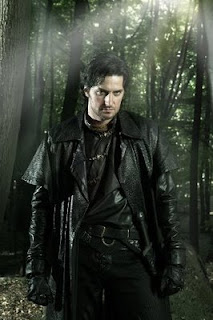If you get emotionally involved in a story, then it's a good book.
If you can read it a second or third time, and still be just as invested, if not more, then it is a great book.
If your life is irrevocably altered for the better because of what you read, then it is literature of the highest quality.
Last summer I finished reading The Hunger Games for the second time, and it literally changed everything.
The movie premiered this past week, so I thought it was a good time to revisit my old blog post. I especially feel that the timing is right, because of some of the anti-Hunger Games sentiment that is going around.
Every major book is going to have its revilers. For Harry Potter, it was the witchcraft thing. For the Hunger Games it happens to be the brutal combat-to-the-death of 24 teenagers.
For obvious reasons, I understand where they're coming from. You want me to read a book about young kids being forced to fight each other in a gladiator-esque arena? No thank you.
I know a lot of people who don't want to read the series because of this. I've even heard people calling it "spiritually damaging." But it's actually the exact opposite.
I'd go so far as to say that:
The Hunger Games is inspiring and spiritually enlightening.
Yes, violent things happen. Yes, adorable 12 year old girls get brutally murdered. Yes, people watch it like a sick reality tv show.
The plot is disturbing. But it's not what the book is about. It's about kids who have to be strong to survive in a hard world. It's about people standing up for their rights. It's about a girl who would offer herself up for certain death, just to protect her little sister.
Those bad things happen in the plot because they have to be overcome.
All of those things are inspiring enough to spawn half a dozen blog posts. But there's more. Something that I think we often forget, but I hope I never will. Not after last June.
As I said, I was re-reading The Hunger Games. The book was awesome enough the first time. That second time though, I really got into it. I already knew the characters and what was going to happen, but I still spent the whole time covering my face and wishing that it would change. Sadly, it didn't. Things still happened, and I still cried.
About ten minutes later, in my after-book stupor, I didn't really know what to do with myself. As usual, I replayed the book over and over in my head, but I'm a multi-tasker by nature. I needed something unobtrusive to do while I analyzed everything.
I hadn't had dinner, so even though I wasn't particularly hungry, I got in the car and started driving. I didn't feel like having anything I passed, and I ended up at Walmart.
As I drove, I began to be impressed by the sheer absurdity of traffic. How people get so mad at other people, or get so obsessed about their precious cars. I'd thought about that kind of stuff before, so it wasn't new, but it was on my mind more than usual.
Then I walked in through the door of Walmart, and I was suddenly hit with a wave of disgust.

I walked past four or five drink machines, two crane machines, and a red box. The commercialism almost overwhelmed me. The flashy labels. The lights. The totally unnecessary products, and the billions of dollars spent in marketing them.
I have to be honest, I almost turned around and walked right back out then and there. But I needed groceries. So I entered the store itself.
Rows and rows of food, piled up for anyone's taking. Dozens of racks with shirts and pants and jackets and socks. Aisles filled with the most advanced toys a kid could ask for. Video games, movies, cell phones, cameras, TVs, laptops.
I felt like a Capital yuppie.

All I needed were a few clueless people. Selfish, arrogant, decorated and clothed according to fashions, and oblivious to the bounty around them... oh wait, Wal-mart had those too. In abundance. Hundreds of them milling about. Complaining about how hard life is while filling their carts without even a thought.
Isn't it scary? How different are we really? Suzanne Collins might have exaggerated a bit when she wrote the Capitol citizens. But only a bit. A very little bit.
I take so much for granted, and I am guilty of emphasizing things that aren't really important. I'd realized that before, but it never hit me on such a deep, extremely real level.
I was disgusted. Almost to the point of nausea.
There really aren't any words that convey the depth of my revulsion for the society in which I found myself. Suffice it to say that I was shocked in a way that I have never been shocked before.
It's been almost a year since then. I am once again capable of shopping in Wal-mart without puking. I almost wish that I wasn't. If it weren't for that silly thing about needing to eat to stay alive...
Every time I read the books, I remember that night. And every time, I remember that I am not starving. I have clothes. I have shelter. I have the right to vote.
I have piles of food. Literally. High quality, disease free, pre-harvested piles of food, to be more specific. And how often do we walk past this without even realizing how fantastic it is?
So word to the wise: Don't go to Wal-mart 5 minutes after reading The Hunger Games. Or better yet, DO.















